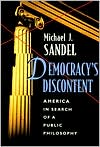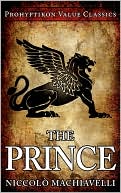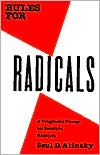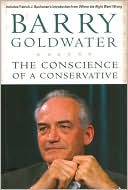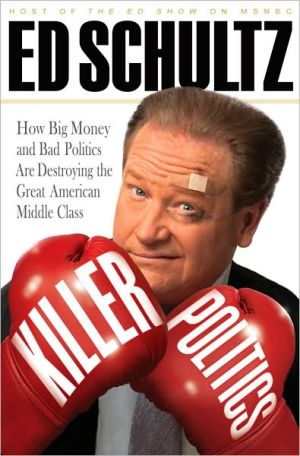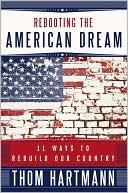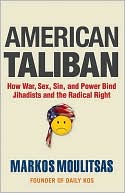Democracy's Discontent: America in Search of a Public Philosophy
The defect, Sandel maintains, lies in the impoverished vision of citizenship and community shared by Democrats and Republicans alike. American politics has lost its civic voice, leaving both liberals and conservatives unable to inspire the sense of community and civic engagement that self-government requires.\ In search of a public philosophy adequate to our time, Sandel ranges across the American political experience, recalling the arguments of Jefferson and Hamilton, Lincoln and Douglas,...
Search in google:
The defect, Sandel maintains, lies in the impoverished vision of citizenship and community shared by Democrats and Republicans alike. American politics has lost its civic voice, leaving both liberals and conservatives unable to inspire the sense of community and civic engagement that self-government requires.In search of a public philosophy adequate to our time, Sandel ranges across the American political experience, recalling the arguments of Jefferson and Hamilton, Lincoln and Douglas, Holmes and Brandeis, FDR and Reagan. He relates epic debates over slavery and industrial capitalism to contemporary controversies over the welfare state, religion, abortion, gay rights, and hate speech. Democracy's Discontent provides a new interpretation of the American political and constitutional tradition that offers hope of rejuvenating our civic life. Alan Ryan - Dissent Democracy's Discontent...is a good guide to the awkward questions we need to ask as we lurch into the next century, as unsure as ever about how to make the democracy of the twenty-first century a shade less disconnected--or at least less pointlessly disconnected--than today's...Indeed, this may well be one of those particularly valuable books that do more good to their skeptical readers than to their fans. The...former will have to think quite hard.
Preface1The Public Philosophy of Contemporary Liberalism32Rights and the Neutral State253Religious Liberty and Freedom of Speech554Privacy Rights and Family Law915Economics and Virtue in the Early Republic1236Free Labor versus Wage Labor1687Community, Self-Government, and Progressive Reform2018Liberalism and the Keynesian Revolution2509The Triumph and Travail of the Procedural Republic274Conclusion: In Search of a Public Philosophy317Notes353Index407
\ Boston GlobeIt is the great achievement of Democracy's Discontent to weave around...lofty abstractions a detailed, coherent and marvelously illuminating narrative of American political and legal history. Recounting the debates over ratifying the Constitution, chartering a national bank, abolishing slavery, the spread of wage labor, Progressive Era reforms and the New Deal, Sandel skillfully highlights the presence (and, increasingly, absence) of republican ideology, the shift from a 'political economy of citizenship' to a political economy of growth.\ — George Scialabba\ \ \ \ \ \ Canadian Journal of PhilosophyDistinctive merits of Sandel's Democracy's Discontent include its admirable combination of conceptual analysis and historical investigation, and the impression throughout of a genuinely thoughtful mind and generous spirit.\ — Hilliard Aronovitch\ \ \ \ Canadian Review of American Studies[Through] detailed historical analysis and eloquent prose, Sandel tells the story of the republican tradition in the United States that demonstrates the central importance character formation and civic virtue once had in American government.\ — James F. Louckes III\ \ \ \ \ \ Christian CenturyOn 'public philosophy' of the most philosophical kind I recommend Michael J. Sandel's Democracy's Discontent...Sandel is delightfully non- or bipartisan in his probes, chastisings and recommendations. Among those asking for a civil civic voice and a re-engagement with the grand themes of citizenship and the common life, he is a leader.\ — Martin E. Marty\ \ \ \ \ \ DissentDemocracy's Discontent...is a good guide to the awkward questions we need to ask as we lurch into the next century, as unsure as ever about how to make the democracy of the twenty-first century a shade less disconnected—or at least less pointlessly disconnected—than today's...Indeed, this may well be one of those particularly valuable books that do more good to their skeptical readers than to their fans. The...former will have to think quite hard.\ — Alan Ryan\ \ \ \ \ \ Glasgow HeraldI found an absorbing read in Michael Sandel's Democracy's Discontent...The United States produces much of the best thinking about how politics is to relate, in an era of alienation, to the civil society it purports to represent...The debate is as relevant on this as on the other side of the Atlantic.\ — Michael Fry\ \ \ \ \ \ New RepublicSandel's latest contribution...is notable for its seriousness, its intelligence and its illuminating excursions into constitutional law...His brand of soulcraft is not about soul-engineering, but about protecting social environments that are conducive to the development of the habits and the virtues upon which all liberal welfare states finally depend.\ — Mary Ann Glendon\ \ \ \ \ \ New York TimesA provocative new book...Democracy's Discontent argues that modern democracies will not be able to sustain themselves unless they can find ways of contending with the global economy, while also giving expression to their people's distinctive identities.\ — Thomas L. Friedman\ \ \ \ \ \ New York Times Book ReviewBeautifully and mildly argued...Mr. Sandel conveys ideas with patient lucidity...The book's strength is historical...Mr. Sandel's philosophical take on history, however, does more than nudge us out of our contemporaneity. He shows, through close readings of Supreme Court decisions, how philosophical conceptions of the person changed—from a premise that an American will inherit a belief in God, for example, to one in which Americans are viewed as people whose religious faith is chosen like desserts at a restaurant...American history is, in Mr. Sandel's telling, a story of the tragic loss of civic republicanism—the notion that liberty is not about freedom from government, but about the capacity for self-government, which alone makes the practice of freedom possible.\ — Andrew Sullivan\ \ \ \ \ \ NewsweekAmerican political discourse has become thin gruel because of a deliberate deflation of American ideals. So says Michael Sandel in a wonderful new book, Democracy's Discontent...Sandel's book will help produce what he desires—a quickened sense of the moral consequences of political practices and economic arrangements...Sandel is right to regret the missing moral dimension of public discourse. Or he was until recently. Suddenly politics has reacquired a decidedly Sandelean dimension. Political debate is reconnecting with the concerns Sandel so lucidly examines...Statecraft is again soulcraft, and the citizens who will participate best, and with most zest, will be the fortunate readers of Sandel's splendid expansion of our rich political tradition.\ — George F. Will\ \ \ \ \ \ Political StudiesDemocracy's Discontent valuably traces the historical origins and development of what Sandel names the 'procedural republic', the political model within which the unencumbered self reigns supreme...The strengths of [the book] lie in Sandel's lucid exposition and analysis; more importantly, he is concerned with illuminating basic issues in political thought by actual historical examples and situations. In making full use of Supreme Court decisions, Sandel is acknowledging that much of the most vital American political thought is to be found in constitutional debates rather than academic treatises.\ — Richard H. King\ \ \ \ \ \ RaritanThis thoughtful book offers a mirror which reflects the complex organization of our political souls...Sandel assiduously draws upon the republican vision to recover forgotten dimensions of American history. He shows the importance of that tradition to the founding of America and, at least until very recently, to constitutional law. He focuses on the history of judicial involvement in those institutions such as religion, family, and public speech that set the stage for democratic citizenship; and he records how in these areas the Supreme Court has shifted from a concern to protect the cultural conditions of citizenship toward a voluntarist doctrine of the rights of the unencumbered individual...These pages, full of reflective argument and vivid examples, will repay attention by anyone seeking to come to terms with the contemporary state of American politics.\ — William Connolly\ \ \ \ \ \ The NationAmong liberalism's critics, few have been more influential or insightful than Michael Sandel, a proponent of what has come to be called the 'communitarian' alternative...In Democracy's Discontent, Sandel...offer[s] a full historical account of the evolution of liberalism in the United States...This carefully argued, consistently thought-provoking book is grounded in a sophisticated understanding of past and present political debates. Democracy's Discontent is well worth reading as we near yet another presidential election in which soundbites and poll-generated slogans substitute for reasoned debate about the nation's future.\ — Eric Foner\ \ \ \ \ \ Times Literary SupplementA rich and beautifully written account of American jurisprudence and political history, one which...is always informative and thought-provoking.\ — Michael Rosen\ \ \ \ \ \ U.S. News & World ReportIn times of trouble men and women ransack their past and their traditions. In Democracy's Discontent...Michael Sandel...has raided that great American attic and returned with a bold narrative of the ancestors and the civic tradition they bequeathed...Sandel gives us one of the most powerful works of public philosophy to appear in recent years...[and] weaves a seamless web between the American present and the American past...[A] brilliant diagnosis.\ — Fouad Ajami\ \ \ \ \ \ Wall Street JournalA profound contribution to our understanding of the present discontents.\ — Paul A. Rahe\ \ \ \ \ \ Washington Post Book WorldMichael Sandel...has written an important book about the meaning of liberty. Sandel argues that over the last century, Americans have abandoned an earlier communitarian view of liberty, rooted in participation in self-government, for a narrower, individualistic definition, based on the power of personal choice. That has led to the great paradox of American politics: Just as Americans have become freer in the conduct of their personal lives, they have become more constrained in their public lives. The strength of Sandel's book is his account of how this definition of liberty has changed over the last 200 years. He argues persuasively that the new definition reinforces undesirable trends in court decisions and public policy...Sandel argues brilliantly that the change in this definition of liberty took place after the Civil War and was based primarily on economic change...His analysis is superb...By revealing the shallowness of liberal and conservative views of democracy, [this book] inspires us to reevaluate what American politics is really about.\ — John B. Judis\ \ \ \ \ \ BooknewsSandel (government, Harvard U.) adds his views to the growing recognition that beneath American affluence and social justice lies a suspicion of government, a lack of control of our lives, and the unraveling of the moral fabric. He traces the problem to an impoverished vision of citizenship and community and a loss of a civic voice that prevents both liberals and conservatives from inspiring a sense of community and civil engagement that self- government requires. He calls for storytellers who can create an inspiring and convincing society to strive toward. Annotation c. Book News, Inc., Portland, OR (booknews.com)\ \ \ \ \ George F. WillAmerican political discourse has become thin gruel because of a deliberate deflation of American ideals. So says Michael Sandel in [this] wonderful new book, ...Sandel's book will help produce what he desires -- a quickened sense of the moral consequences of political practices and economic arrangements. -- George F. Will, Newsweek\ \ \ \ \ Kirkus ReviewsA wide-ranging critique of American liberalism that, unlike many other current books on the matter, seeks its restoration as a guiding political ethic.\ "Despite the achievements of American life in the last half-century," political theorist Sandel (Harvard) writes, "our politics is beset with anxiety and frustration." He suggests that the growing public mistrust in the federal government, whose manifestations range from the conservative sweep of Congress in the last election to the Oklahoma City bombing, can be addressed only by reevaluating the liberal assumption that "government should be neutral on the question of the good life," and by putting in its place a social-democratic concern for the spiritual well-being of the citizenry. The "utilitarian calculus" of the past has helped preserve individual liberties, Sandel observes, but it finds little room for weighing the finer questions of morality in recommending action. (For instance, Sandel remarks, minimalist liberalism of the sort that is practiced today could scarcely find room for the antislavery arguments of the abolitionists a century and a half ago, relying as those arguments did on "appeals to comprehensive moral ideals.") This indifference to the character of the citizenry, Sandel adds, is not the province of liberalism alone; where liberals have defended abortion rights on the grounds that government has no place in moral issues, conservatives have likewise argued for laissez-faire economic policies, claiming "government should be neutral toward the outcomes" of a market economy. Sandel is strong on tracking the history of this value-neutralization of government; he is less successful in identifying the particulars of a practical yet value-laden ethic that can "repair the civic life on which democracy depends" while not trampling on anyone's liberties—one of the thorny dilemmas of current reformist politics.\ A book rich in ideas, if not in blueprints for action.\ \ \
